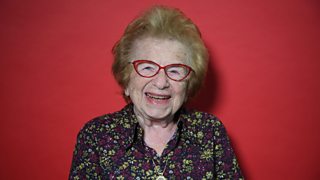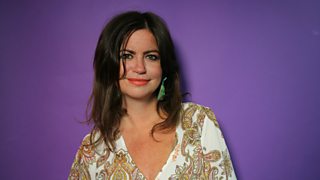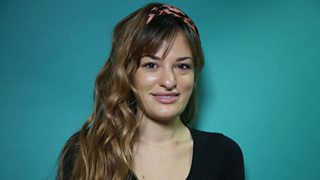Solo parenting: What we’ve learnt from choosing to become single mothers using a donor

What is it like to choose to become a solo parent using donor sperm and eggs?
±«Óãtv Radio 4’s Woman’s Hour spoke to Genevieve Roberts, author of Going Solo, who has already become a mum using donor sperm and Beth who is using both donor sperm and egg and is pregnant with her first child.
What have they learnt since making their decision?

Genevieve Roberts
Genevieve Roberts was 37 and single when she decided that she wanted to become a solo parent. She had previously had two miscarriages and had found out that her fertility was decreasing.
Genevieve now has a daughter called Astrid who was conceived using donor sperm. She is expecting her second baby in May, who was conceived in the same way.
Be open
“The amount of support I’ve had from friends and family along the way, and that both Astrid and I receive now, I think is largely because I’ve been so open about it and people understood how much I longed to be a parent.
“That does make people want to help, which I feel very grateful for.”
Plan but enjoy the everyday moments
“Solo mums as a whole seem to plan a lot further in advance than people in couples.
“I think that’s really, really natural. I think that we feel we have to think ahead as far as schooling and things like that, almost before our babies are even conceived to check that this is viable because you don’t have that support from someone else.
“I think that’s totally natural, I don’t think I’d do it any other way, but what it makes me appreciate now is the moments in every day that we haven’t pre-planned, where I get to just enjoy Astrid and see her character shining through.”
Talk to your child early on about how they were conceived
“I talked to Astrid from an early stage about how much I love her, how much her family loves her, and that she is donor conceived.
“It’s something that I was told at counselling that you never want to have this watershed moment at seven when you have to sit your child down and explain there’s something big and you have to chat to them.
“It’s been great to start that before Astrid could really talk, so I could learn the patter and the simplicity of talking about the ‘special ingredient’ that I was given that enabled me to make her.”
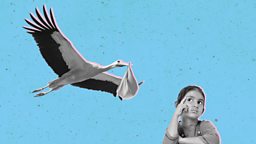
Be prepared for your child’s curiosity
“My expectation is that Astrid could be very curious.
“I’ve spoken to quite a few people who were conceived by donor adults as I was researching my book, and I’ve found their curiosity into their origins was something that quite a few of them shared.
“Some weren’t interested at all, but quite a few did have that curiosity.
“It made me feel so strongly how much I want to support whatever Astrid and my son-to-be’s decision is, whether they are interested or not interested.
“The most loving thing I can do is give them every bit of support in that so they can understand their history, their genetic history if they want to.”
It’s OK if your life doesn’t follow the expected path
“I’ve learnt what it feels like not to have a partner, to go through this on my own.
“It’s not a path that I would have thought that my life would have followed, and I think that’s taught me so much - that the most beautiful and wonderful things in life can happen or do happen when things don’t follow the most expected path.
“I don’t think I could be luckier.”
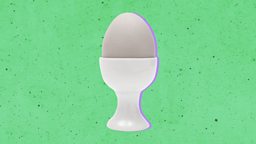
Beth
Beth is in her late thirties and has always wanted to become a mother. She hasn’t found a partner and struggled with fertility so she decided to use both donor sperm and a donor egg to conceive. After years of trying to conceive, she is now three months pregnant with her first child.
I could have been more aware of fertility
“I’d heard that it declines after 35 but I wish I’d had a fertility check up, just at different times over my thirties so I could assess exactly where I was and to consider my options.”
I wish I’d known about donors earlier, both egg and sperm
“One of my fears of the fertility test was finding out that I was infertile and what would I do with a new partner in terms of sharing [that information]?
“If I’d even known then that having an egg donor was an option, I’d be more open to meeting a partner and saying, ‘my fertility is low, but I could use an egg donor’.”
Counselling is important
“Most fertility clinics offer it, but they don’t always share it.
“I’d banked six free fertility counselling sessions without realising I was already owed them. “Counselling for me was crucial for getting through the whole process as it’s been so relentless.”

Still live your life
“It can be really hard - particularly, if like me, I was in a cycle of round after round of IVF - it can be really easy to look ahead and think, ‘I could be pregnant, I could be doing this’, and you just stop living your life.
“You’ve still got to live your life.”
People can be very accepting
“I wouldn’t be so nervous about people accepting [you] making a choice like this to do it on your own, or with donors.
“People have been incredibly accepting, including of an egg donor which I was more afraid of.
“If people aren’t accepting, I would say you can probably live without them in your life or they will come round [to it].”
You can find more information and support about using donor sperm or donor eggs via the .
The Woman's Hour parenting podcast is released every Wednesday.
You can listen to the podcast here or you can download it on the ±«Óãtv Sounds app.
